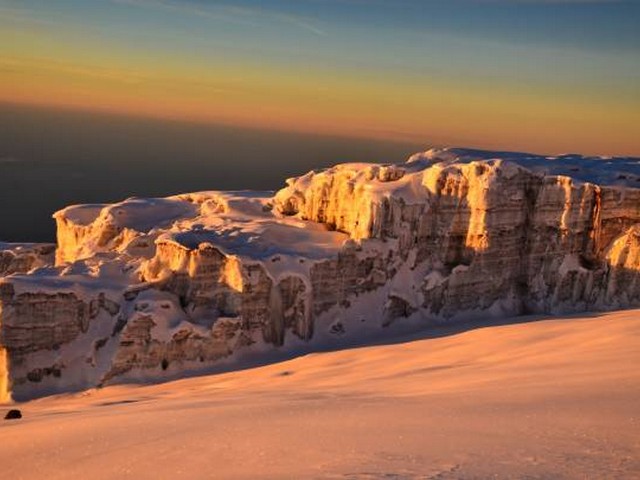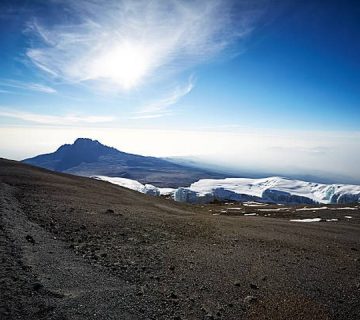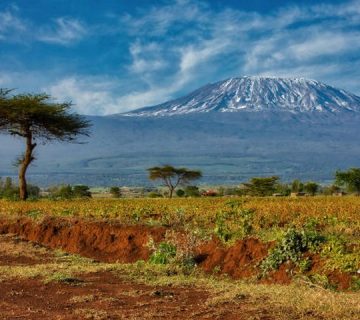How Kilimanjaro Impacts Local Culture and Economy
The Majestic Mount Kilimanjaro: A Pillar of Tanzanian Splendor
Nestled in the heart of Tanzania, the towering Mount Kilimanjaro is not just a natural wonder but also a pivotal element in the local culture and economy. At Kilimanjaro Centre for Trekking and Ecotourism (KCTE), we are privileged to witness daily how this iconic mountain enriches the lives of the communities around it. Kilimanjaro is more than Africa’s highest peak—it is a source of inspiration, a means of livelihood, and a cultural heritage site that tells stories of resilience and community spirit. This blog post explores the profound impacts of Kilimanjaro on the local culture and economy, unveiling reasons why experiencing this majestic mountain with KCTE is a must for every adventure traveler.
Cultural Significance of Kilimanjaro
The Heartbeat of Chagga and Maasai Cultures
Kilimanjaro is deeply woven into the fabric of the local tribes, particularly the Chagga and Maasai. For the Chagga people, the mountain’s fertile slopes are their cherished farmlands, where they cultivate coffee and bananas. Kilimanjaro’s influence is evident in their agricultural practices, rituals, and daily lives, which have evolved around the mountain’s seasonal rhythms.
The Maasai, known for their semi-nomadic lifestyle, revere Kilimanjaro as a sacred place. It influences their pastoral routes, traditional ceremonies, and stories passed down through generations. The mountain is not just a backdrop for their lives; it’s a central character in their cultural narrative.
Kilimanjaro in Folklore and Art
Kilimanjaro features prominently in local folklore, symbolizing strength, permanence, and providence. Stories and songs about Kilimanjaro teach lessons of unity, respect for nature, and the importance of community. Local artisans craft beautiful Kilimanjaro-inspired artwork, jewelry, and fabrics, which are popular among tourists and serve as a source of income.
Economic Impact of Kilimanjaro
Tourism and Employment
Tourism centered around Mount Kilimanjaro is a significant economic driver in northern Tanzania. At KCTE, we employ local guides, porters, and support staff, providing sustainable job opportunities that are crucial for the local economy. The influx of climbers and tourists translates into income for local businesses including hotels, restaurants, and markets.
Boosting Local Agriculture
The fertile volcanic soil on Kilimanjaro’s slopes supports a rich agricultural sector. Local farmers grow coffee, bananas, and a variety of vegetables that are sold locally and exported. Tourism has increased demand for these products, boosting the agricultural sector and providing a steady income to farmers.
Conservation Efforts and Sustainability
Revenue from park fees and tourism helps fund conservation efforts to preserve Kilimanjaro’s unique ecosystems. At KCTE, we are deeply committed to promoting responsible tourism, which includes educating visitors on the importance of conservation and supporting local initiatives to maintain the mountain’s biodiversity.
Kilimanjaro and Education
The presence of Kilimanjaro also impacts local education by providing numerous learning opportunities. Environmental and cultural education programs funded by tourism revenue help raise awareness among local children about the importance of their natural heritage. Moreover, many schools benefit from international donations and volunteer programs attracted by Kilimanjaro.
Why Experience Kilimanjaro with KCTE?
Authentic Cultural Experiences
When you climb Kilimanjaro with KCTE, you’re not just embarking on a physical journey, but a cultural adventure as well. We provide authentic experiences that allow you to engage with local communities, learn about their cultures, and participate in traditional ceremonies. This enriches your understanding and appreciation of the mountain beyond its physical majesty.
Expert Guides and Sustainable Trekking
Our guides are locals who have grown up in the shadow of Kilimanjaro and are trained to offer you the safest, most enjoyable trekking experience. They are passionate about the mountain and eager to share its secrets with you. We adhere to eco-friendly practices to ensure that we leave no trace and preserve Kilimanjaro’s beauty for future generations.
A Commitment to Making a Difference
By choosing KCTE, you contribute directly to the local economy and support community projects that improve living conditions around Kilimanjaro. Your journey with us is a step towards sustainable tourism and meaningful travel.
Conclusion: Join Us in the Heart of Tanzania
Mount Kilimanjaro is more than just a mountain; it is a vibrant ecosystem, a cultural symbol, and a life source for the local communities. Its impact on the culture and economy of the region is profound and enduring. Experiencing Kilimanjaro with KCTE not only promises an unforgettable adventure but also a chance to contribute positively to the area and its people.
Whether you’re seeking adventure, cultural immersion, or a chance to connect with nature, Kilimanjaro offers it all. Book your climb with Kilimanjaro Centre for Trekking and Ecotourism, and be part of a journey that respects, celebrates, and uplifts the local heritage and environment. Join us to discover why Kilimanjaro is not just a mountain, but a monumental experience.
Frequently Asked Questions
Q: What is the best time to climb Kilimanjaro?
A: The best times to climb Kilimanjaro are during the dry seasons, from June to October and from December to March.
Q: How difficult is it to climb Kilimanjaro?
A: Climbing Kilimanjaro is a challenging adventure, but it is achievable with the right preparation and guidance. KCTE offers various routes and personalized training advice to cater to different fitness levels.
Q: How does KCTE support local communities?
A: KCTE employs local staff, purchases local products, and contributes to community projects, which helps stimulate local economies and support sustainable development.
Q: Can I participate in cultural activities during my climb?
A: Yes, KCTE offers cultural add-ons to your trekking experience, including village tours and cultural nights, where you can learn about local traditions and customs.
Embark on your Kilimanjaro journey with us, and experience the heart and soul of Tanzania.




